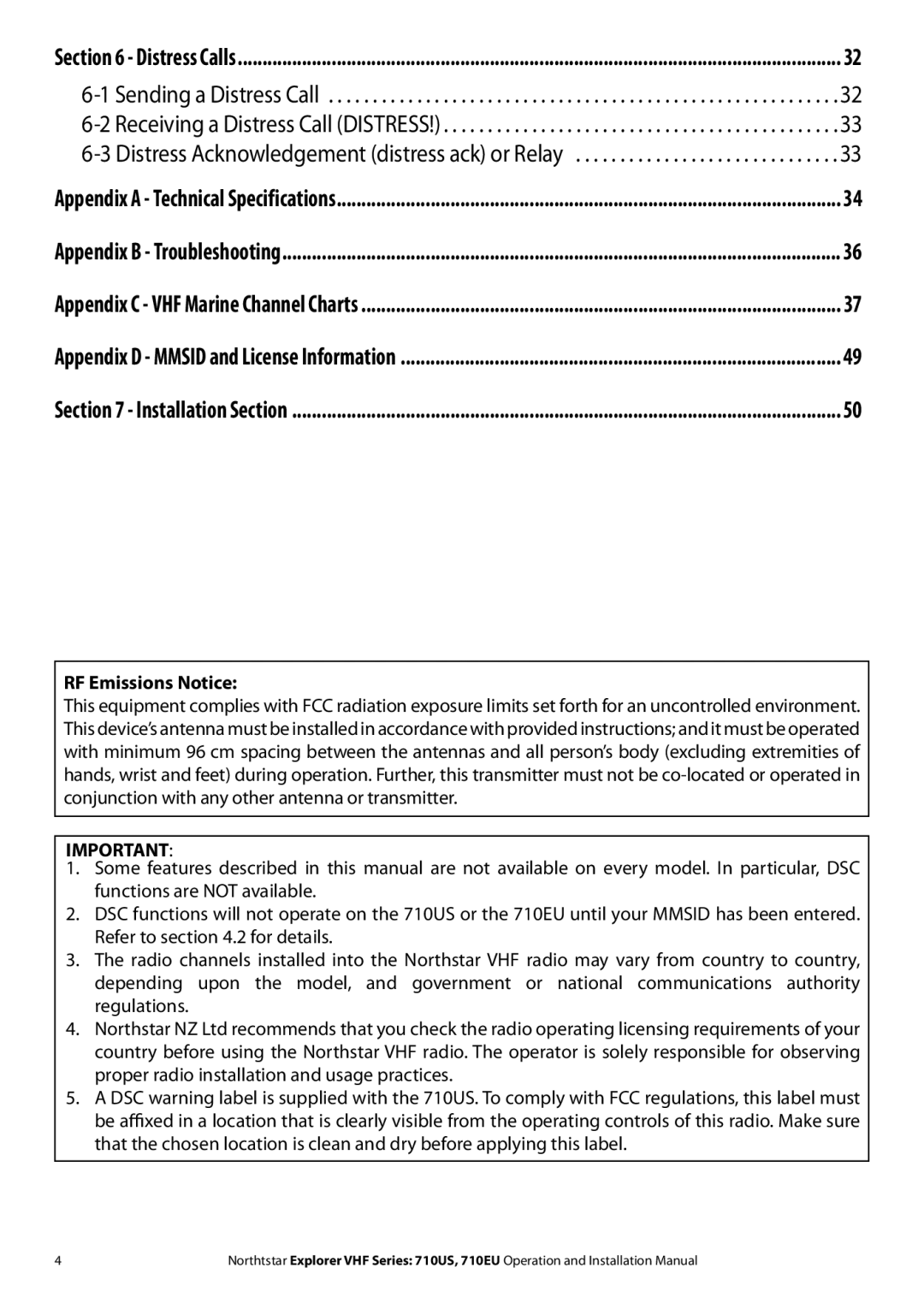
Section 6 - Distress Calls | 32 |
32 | |
33 | |
33 | |
Appendix A - Technical Specifications | 34 |
Appendix B - Troubleshooting | 36 |
Appendix C - VHF Marine Channel Charts | 37 |
Appendix D - MMSID and License Information | 49 |
Section 7 - Installation Section | 50 |
RF Emissions Notice:
This equipment complies with FCC radiation exposure limits set forth for an uncontrolled environment. This device’s antenna must be installed in accordance with provided instructions; and it must be operated with minimum 96 cm spacing between the antennas and all person’s body (excluding extremities of hands, wrist and feet) during operation. Further, this transmitter must not be
IMPORTANT:
1.Some features described in this manual are not available on every model. In particular, DSC functions are NOT available.
2.DSC functions will not operate on the 710US or the 710EU until your MMSID has been entered. Refer to section 4.2 for details.
3.The radio channels installed into the Northstar VHF radio may vary from country to country, depending upon the model, and government or national communications authority regulations.
4.Northstar NZ Ltd recommends that you check the radio operating licensing requirements of your country before using the Northstar VHF radio. The operator is solely responsible for observing proper radio installation and usage practices.
5.A DSC warning label is supplied with the 710US. To comply with FCC regulations, this label must be affixed in a location that is clearly visible from the operating controls of this radio. Make sure that the chosen location is clean and dry before applying this label.
4Northtstar Explorer VHF Series: 710US, 710EU Operation and Installation Manual
